Forming a strong crypto SEO strategy is one of the vital steps you need to take before plunging into the world of digital cryptocurrencies. Not only does a SEO strategy increase your position within the Google search rankings, but it also increases traffic to your site and potential investors. No matter if you are just beginning your blockchain company or have years under your belt, there has never been a better time to focus on your crypto SEO strategy.
In this article, we'll cover the 7 steps that will lead you from content ideation right up to acquiring backlinks and refreshing content. Let's jump right into it!!
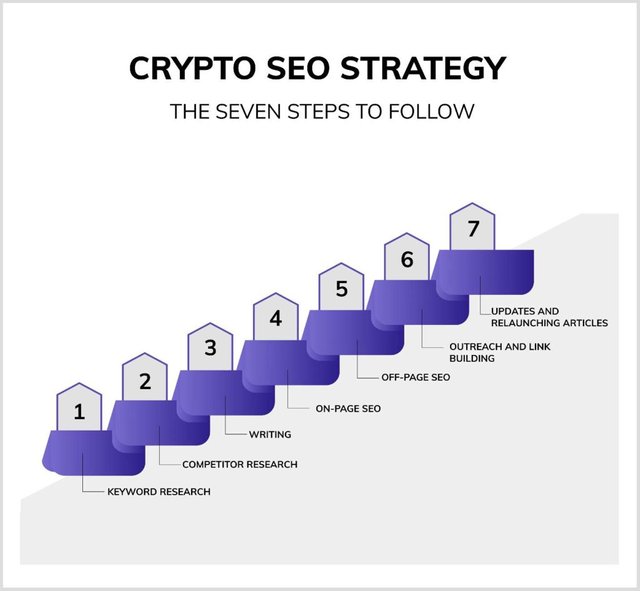
What is SEO Strategy?
SEO strategy is the process of incorporating on-page, off-page, and technical SEO in order to create a path towards that top spot on Google. But, although your initial, and often long-term, goal will be to get to that elusive first page, SEO strategy doesn't stop there.
In fact, crypto SEO strategies don't finish once you hit that #1 stop. Instead, SEO is a continual process of improving and maintaining your rankings. Let's take a look at the top searches for 'Content Marketing Strategies'.
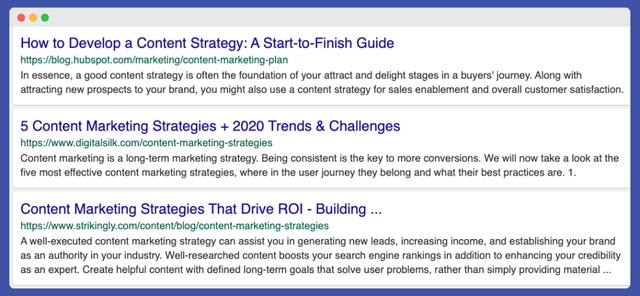
Right now Hubspot, DigitalSilk, and Strikingly all have the top three spots. But, if they were to completely abandon their web pages, they would eventually begin to slip down the listings. That's because SEO is an ongoing process of gaining backlinks, updating your content, and refreshing the style of your blog posts.
If you think this seems like an overly complicated process, you can thank Google personally. But, don't worry, this article will help simplify things for you. In 8 simple steps, we're going to break down everything you need to do to form and execute a crypto SEO strategy.
From the initial stages of forming an idea to the later moments of outreach, our guide has it all.
You'll be an SEO master in no time.
Why is a crypto SEO Strategy important for your cryptocurrency business?
SEO strategy is important for any business that wants to generate and sustain a digital presence. For a cryptocurrency business, crypto SEO strategy becomes even more vital.
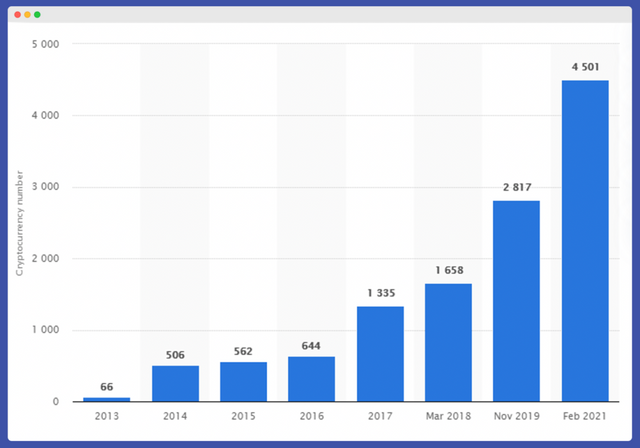
Considering that cryptocurrency is still a relatively new niche, many of the most influential brands have yet to be established. Back in 2013, there were only 66 cryptocurrencies on the market. That number has continuously grown over the years, with over 2,329 IDOs launching in 2020.
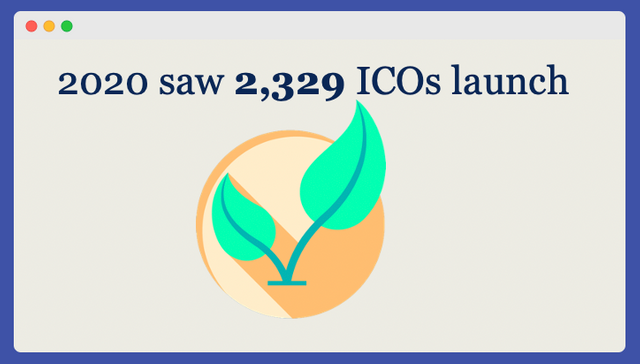
A solid crypto SEO strategy will let you break ahead of those other IDO projects, rising to the top of the Google rankings and increasing your brand awareness. Let's take a look at three of the largest benefits of crypto SEO strategy.
Google Rankings and Traffic
When done correctly, optimising your web pages with crypto SEO strategy will increase your ranking on Google. Not only does this grant more exposure to your business, but it also means that more people will be clicking on your site. Considering that 91.5% of people never even make it to the second page of Google, getting to the first page is vital for your success.
More eyes on your website will lead to more people converting into investors. In fact, by running some analysis, here at GuriellaBuzz we've discovered that there is a strong correlation between the number of keywords that a website is ranking for and the amount of money their projects raise.
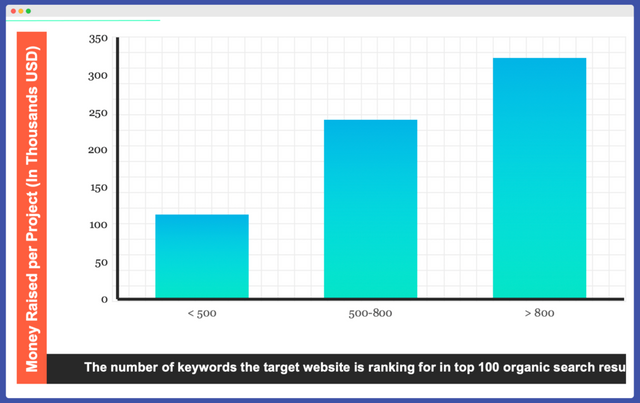
Of course, the logic is simple. If more people are exposed to your brand, more will take the time to read through your content, and a few of those could convert into investors.
If you're looking to boost your funding and customer base, a strong crypto SEO strategy is one of the best ways forward.
Brand Authenticity
As cryptocurrency is a fairly new niche, it is still not fully understood by a large portion of the general public. There are currently around 106 million users of cryptocurrency, but that number is growing every single day.
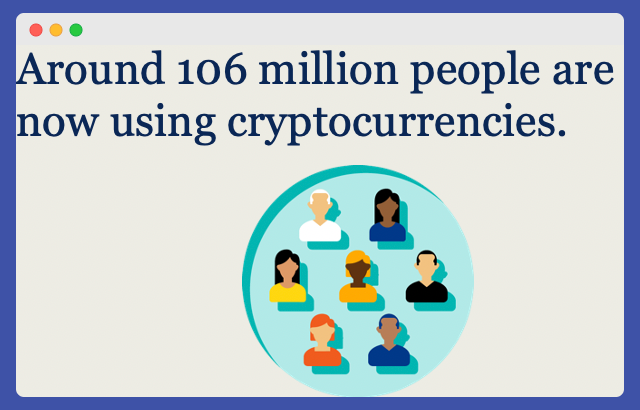
In fact, we estimate that the world is predicted to spend up to 15.9 billion in blockchain-related tech by 2023. As the crypto-niche grows, you want to establish yourself as a brand that people can trust.
One of the best ways to gain supporters and followers in the crypto niche is by moving up those Google rankings and engaging with the community. If your blog articles consistently rank highly for answering crypto-related questions, people will constantly be reading your articles and seeing your brand name.

Nothing builds the idea that your company is a powerhouse in the cryptocurrency market like topping those Google ranking pages. Just ask yourself, are you more likely to trust a source for the first page of Google or the tenth? According to SearchEngineWatch, the first link on Google gets 33% of total traffic. Clearly, it makes a huge difference.
Just by moving up those rankings, you'll be increasing the number of eyes on your business, establishing your IDO as an authentic brand, and increasing brand awareness!
Get Ahead of Others
Although cryptocurrency is a digital-based niche, many IDO projects completely overlook SEO. Due to this, if your cryptocurrency business capitalises on their mistake and invests in Blockchain PR and Blockchain Marketing, you'll be able to surpass your competitors.
By focusing on a strong crypto SEO strategy, you can move up the Google rankings and establish yourself in the cryptocurrency niche. If you want to secure your blockchain business a part of the $1.28T cryptocurrency market cap, you need to use every tool you can.
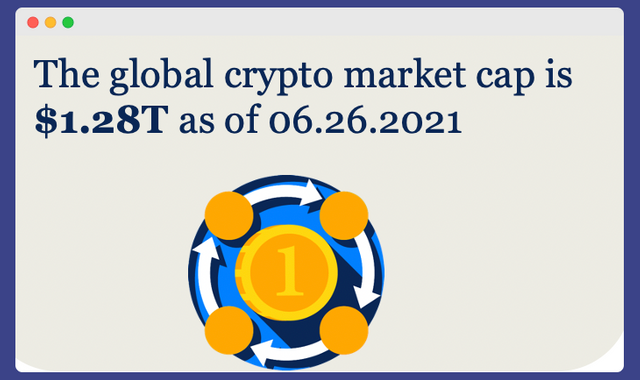
To increase the success of your IDO project, you need to begin doing what other cryptocurrency companies shy away from. Establishing a strong crypto SEO strategy is vital to your success.
Now we know why crypto SEO strategy is so important, let's discuss the seven steps you can follow towards that top Google ranking, and beyond!
Crypto SEO Strategy -- The 8 Steps You Should Follow
Every piece of content begins with a great idea. That's why step one is all about idea generation and keyword research. Let's jump into it.
Step One: Keyword Research

First of all, what exactly is a keyword? Well, a keyword is a central word, or short phrase, that summarises the whole of your content page. If you were writing a blog about 'What is Crypto Keyword Research and how to do it?', like we have, a good keyword would be 'Crypto Keyword Research'.
Keywords can be just a singular word, whatever you feel summarises your content best.
Keyword research is taking your initial idea about then checking how difficult it would be to rank for that keyword. Some keywords are harder than others. One easy way we can get some statistics about possible keywords is by using Google Keyword Planner.
As a crypto blog, a keyword that instantly comes to mind is 'cryptocurrencies'. Let's take a look at what we get when we plug this into Google Keyword Planner.
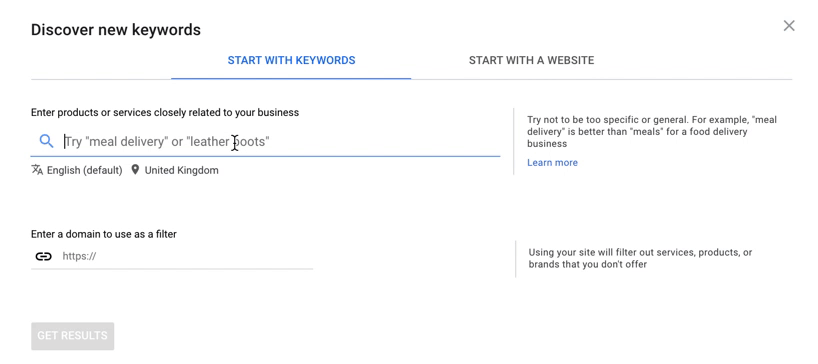
Google Keyword Planner
Google Keyword Planner gathers a range of information on the keywords. For digital marketing through SEO strategy, the most important points to look for are 'Average Monthly Searches' and 'Competition'.
These two metrics will tell you how many people are looking at a particular keyword and how the difficulty out of low, medium, and high to rank for that keyword. Take a look below:
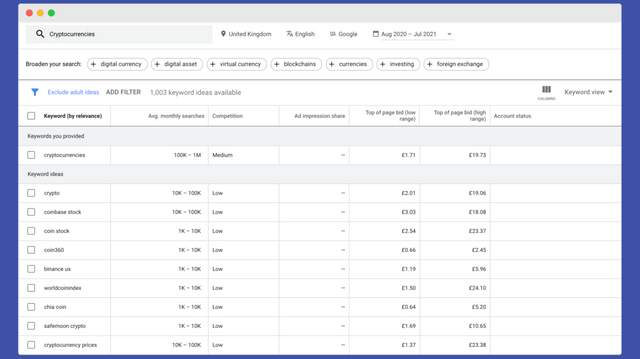
Just searching based on U.K. databases alone, the keyword 'Cryptocurrency' has between 100k-1m searches every single month. However, there is a medium level of difficulty to rank.
One of the best things about Google keyword planner is that it offers alternative keywords to watch for. Here we can see that the keyword 'Crypto' gets between 10k-100k searches per month and has a low competition ranking. That means that while it would be easier to rank for the keyword, fewer people are searching for it.
Metrics like these allow you to work out which of target words you're going to be going after are worth it. If you think of a keyword that you wanted to write about but it has almost no searches and high competition, try looking for a synonym on the list that matches with your goals.
The key is finding that balance between the number of searches and the potential difficulty of a keyword. The keyword list also provides lots of other suggestions that you could also use as a central keyword for an article. From these suggestions, I could then choose to write about 'Coinbase Stock', as that has a strong level of searches per month and low competition.
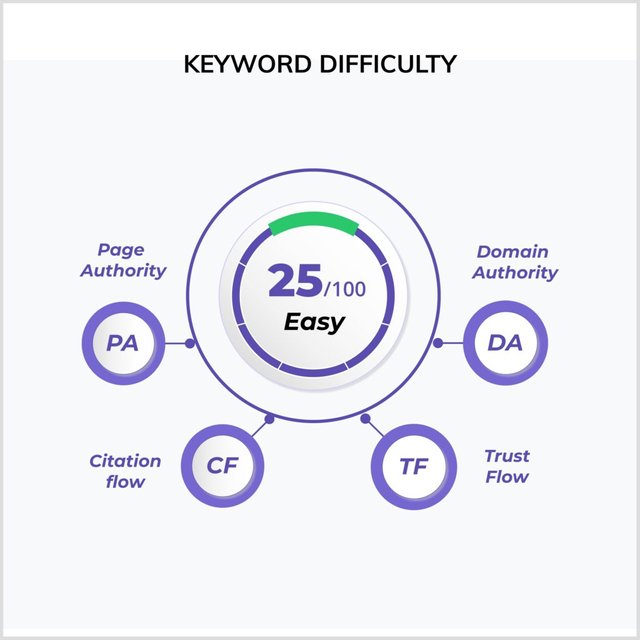
Keyword research is always the first thing you should do before writing a new article.
Step Two: Competitor Research
Once you've worked out a potential keyword and formed a title that includes that keyword, it's time to do some competitor research. The purpose of competitor research is to establish two things:
- What article format and structure are ranking competitors using for my keyword?
- What other content do my competitors offer that I could take note of?
Let's say you were running a travel blog and wanted to write on the title 'Best Places to Visit in Colombia'. Some of the top results of this Google search are as follows:
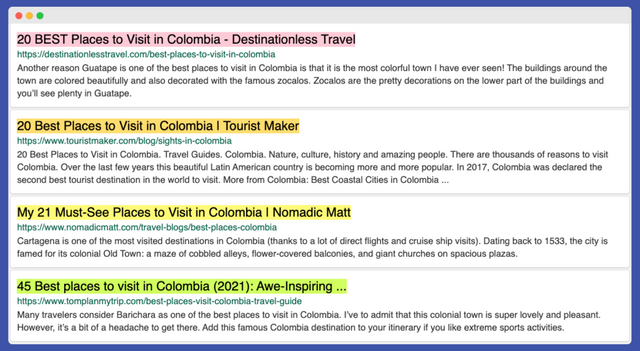
As we can see, all four of these websites have followed the same content strategy. They've gone for a listicle type of article. Working out a style of article that fits into your niche is a great way of saving yourself some time. Luckily for you, you can simply check out competitor websites and see what's working there.
For example, if we type in a different search term like 'Social Media Marketing', we can see that the content comes in a different form. Most of these either follow the 'How To' or 'What Is'/'Guide' styles of wrting. A listicle wouldn't work particularly well in this niche.
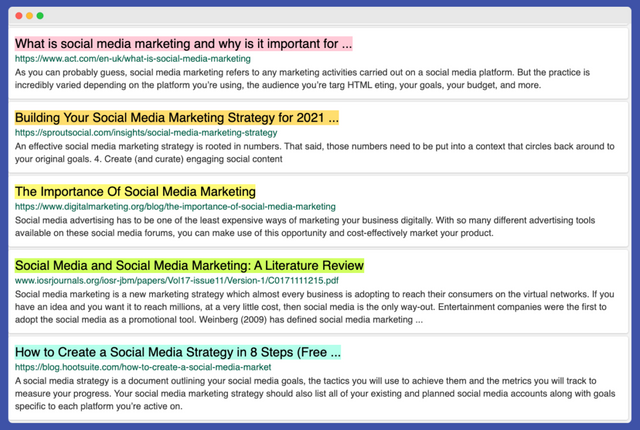
Once you've found some competitor sites, you can also check out the current articles that they're publishing. These will give you an insight into the sorts of articles you, too, could begin to publish.
Now that you know which initial keywords you want to target, have an idea of the article format, and know what future articles you could move onto, it's time to start step three -- writing!
Step Three: Writing
Fail to plan, plan to fail.
By this, I mean that you should try to outline a skeleton structure for your article before you begin writing. Although this will take time, it'll save you time when writing as you won't have to stop and plan what comes next. It also ensures that your article flows naturally and has logic that progresses as you continue.
Write your title at the top and some key headings that you're going to write under throughout. Once you have these outlined, begin writing! We'll talk about SEO shortly, but for now just try and produce an article of writing that is useful and you're happy with.
If you can, always include original research and infographics in your articles. Although these infographics can be simple, they are a point that people can share online. Articles that contain photos are much likely to be shared.
Recently, Buzzsumo revealed a graphic that demonstrated the perfect word-to-photo ratio in a blog post. On the X-axis you have the number of words between each photo, and on the Y-axis you have the number of shares a blog post received.

As you can see, including a photo every 75-100 or 125-150 words is the sweet spot. Doing this will increase the number of shares your content gets.
Including your data is a great way of ensuring that you receive backlinks down the line. Although we'll discuss this more in step five!
To summarise:
- Plan your article before you write it
- Include photos
- Include infographics
- Incorporate statistics (even better if they're your own research!)
If you want even more advice on writing your blog, check out this complete Crypto Blog SEO guide we wrote!

Step Four: On-Page SEO for Crypto SEO Strategy
On-page SEO is about optimising your content so that it has the best chance of reaching the first page of Google. Luckily for us, a lot of the changes you'll make to help with on-page SEO actually make the article much easier to read for the consumer.
The main on-page SEO elements you'll be focusing on are:
- Slug
- Internal Links
- Meta Descriptions
- Optimising Images
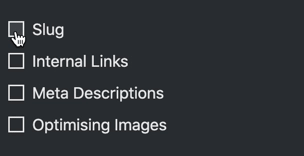
These are some of the most important things to consider when doing on-page SEO. If you want to know everything to cover when doing on-page SEO, check out our complete guide to crypto on-page SEO.
Slug
A slug is the part of the URL of a website that links directly to a certain page. A website will have a base slug, which will then be followed by the additional words for that article.
For our site, the central slug will always be GuerrillaBuzz.com
To make an efficient slug for your article, you should include the keyword of your article. Try to avoid any time markers, as they could reveal your content as outdated over time. While your title could be 'Best Crypto Websites in 2021', the slug should only include best-crypto-websites, avoiding the year.

Internal Links
Every piece of content you write on your own website should link to at least two other posts or pages on your website. Two is the very least you should do, often you should aim to link (where possible) to as many as possible.
Internally linking helps your site in two ways. The first of these is that a person will stay on your website for longer, moving through your articles as they come across terms they don't fully understand.
Just like above how I offered you a link to the complete guide to crypto on-page SEO. A person looking to learn more may click that link and spend even more time on your site. This creates a pathway of content, a reader consuming piece after piece and keeping them engaged with your content.
Secondly, internal linking strengthens the link profile of a web page. The more links that go to a webpage, the stronger it is (or the more reliable/authentic it seems) to Google. This will help Google then recommend your site to more people as you move up the rankings.
As we know, the more people that engage with your content, the more likely an IDO project is to gain funding! We discuss internal links in more depth in our Crypto Link Building Guide!
Make sure to internally link to your content where you can!
Meta Descriptions
A meta description, commonly known as a 'Snippet', is the small section of text that Google displays about your website. For this website about the Top 10 London attractions, the snippet describes a little about their content.

To optimise this section of your article for SEO, you should aim to do two things.
- Keep the description between 120-150 characters -- this ensures the meta description does not end in a truncated ellipsis, displayed below:

- Include your central keyword within the meta description -- this helps Google further understand the content of your page and what you've written about. For the above posts, the keyword was most likely 'Visit in London' as this is featured in both.
Optimise Images
You should name every image that you are going to feature in your article before you upload it to your site. This ensures that it, too, could be found when a keyword is searched on Google Images. Google will categorise your image based on its file name.
Additionally, you should edit the ALT description of a photo to include a brief description of what's going on in the photo. Not only will this help with SEO, but it'll aid visually impaired users of your website to enjoy your content to the fullest.
Now that you've done these four key things, it's time to move on to off-page SEO!
Step Five: Off-Page SEO for Crypto SEO Strategy
Crypto SEO Strategy for off-page SEO is about anything that isn't located on your website. This could be others' websites, podcasts and interviews for other creators, or communicating with individuals through emails.
The ultimate purpose of crypto off-page SEO is to gain backlinks (links that point from other websites to your content) for your site. There are three key ways we can go about this:
- Guest Posts
- Interviews and Podcasts
- Video Content
Guest Posts
A guest post is where you write an article for another website, normally on a topic that you're an expert on. For the crypto niche, this is a great way of building up contacts in the crypto community and raising awareness for your blockchain company.
Writing an article on another website grants you access to a whole new audience. Additionally, it provides the opportunity to include links to your site throughout the article, building up backlinks for your page. If you have an 'About the Author' bio, you can also describe a bit about who you are, or the brand you run, with links back.
Interviews and Podcasts
Just like guest posting, doing interviews or podcasts provides the perfect opportunity to get your name out there. You'll be able to establish yourself as an expert in the crypto community, as well as building brand awareness around your blockchain company.
Within the podcasts and interviews, the written summaries will often include links back to your website. This will gain you valuable backlinks to your site.
Just take a look at this research we've recently completed to see how important these backlinks are:
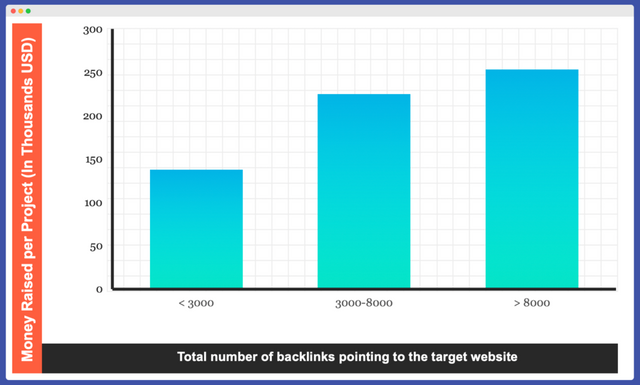
The more backlinks your site cultivates, the more likely it is to get funding for its IDO project.
Video Content
Video content is one way you can turn your established and successful posts into additional content. At the start of an article, you can link to this video content for those that would rather watch a video about your article. Additionally, you can link to the blog post in the video description, providing a backlink.
An example of this is when we made our article for Blockchain Marketing into a YouTube video, granting more exposure and backlinks.
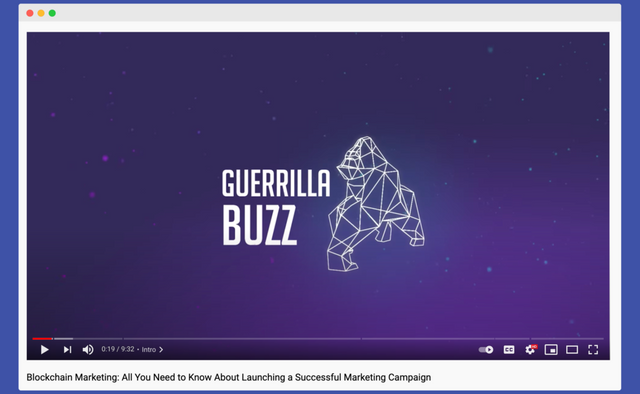
You can also engage with the crypto community on sites like Reddit to gain a following and increase brand awareness. Take a look at the size of some of the different communities on Reddit at your disposal. Get involved with the community, post links to your content, or show off your useful infographics!
Step Six: Outreach to the Crypto Community and Link Building
Engaging with your own community is vital to establishing yourself as an authentic brand and proving your expertise in the crypto space.
One of the best ways to do this is through social sites, listed below. Take a look at the size of some of the different communities on Reddit at your disposal. Get involved with the community, post links to your content, or show off your useful infographics.
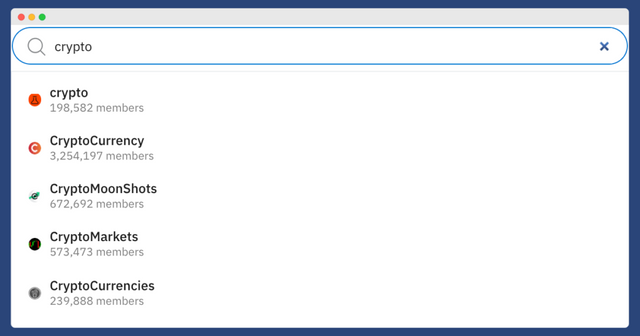
You can also email some established individuals or brands in the crypto space. This is where having a great infographic or new research to share really comes in handy.
If you have some information to share, you could find blog articles that have recently discussed a similar topic. Then email the author of the article showing them your information. If it is genuinely useful information, the author could decide to incorporate it into their article or to use your research in a future article.
Outreach is one of the harder forms of gaining backlinks. However, it really can be the most valuable. Try out a few different email templates to get a better idea of what works for you. Remember to always demonstrate what you can do for other people, and not the other way round.
The better your content is, the easier it will be to make people realise!
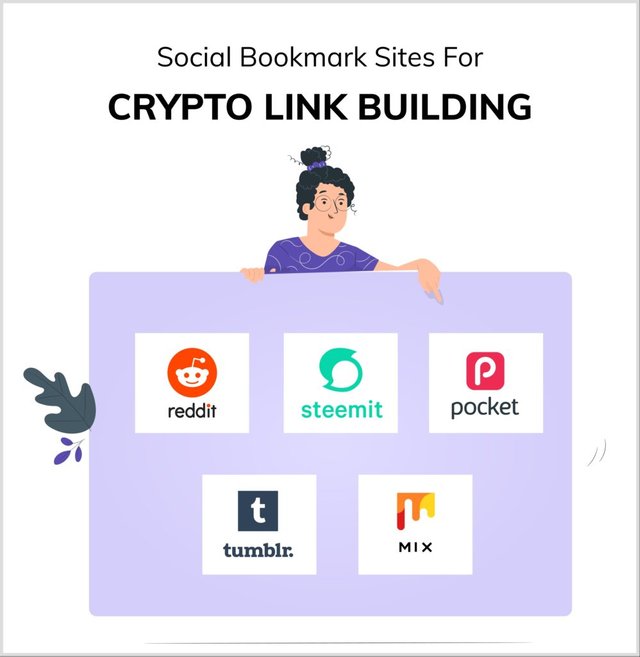
Step Seven: Update Articles Over Time and Relaunch Articles
At this point in the process, you've written successful articles that have keyword research and on-page SEO. You've even begun cultivating backlinks through the process of crypto off-page SEO, your crypto SEO strategy is going swimmingly.
The final step to crypto SEO strategy after the previous six is to constantly refresh your content. Every few months, go back through the content you've written. Is all your information still useful? Has new content come out that could improve your own article? Maybe you've done new research that is even better than last time?
Whatever it is, updating your articles will demonstrate to Google that the article is still worth recommending.
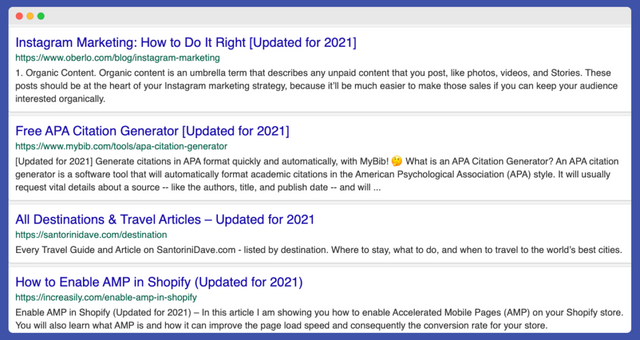
Updating articles is incredibly common around each new year. You'll often see an article that attaches the [updated for 2021] tag on the end. After all, who want to click on an article that seems outdated.
If you have two articles in front of you, which of the following would you select?
The 5 tips you must follow in 2018 to gain Twitter followers
The 5 tips you must follow in 2021 to gain Twitter followers
Most likely, you'll go for the information that is more recent, as that is most likely more relevant to the current age.
Final Thoughts
By following these 8 steps, you will have a flawless crypto SEO strategy that you can employ across your website. Work through these steps and pay close attention to what works for you. Over time, you, too, will become an expert at crypto SEO.
In the meantime, if you need any help with crypto SEO, be sure to reach out to our team. We have years of experience helping IDO projects receive funding and boosting the return of blockchain PR and marketing campaigns.
Best of luck with your crypto SEO strategy!
Original Source
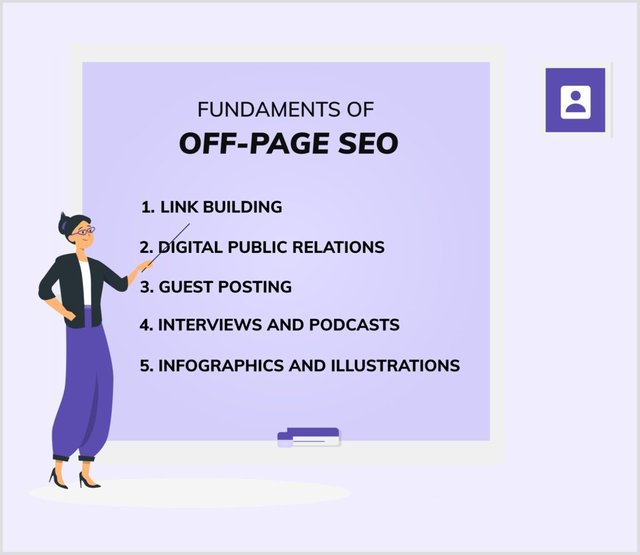
I really liked the Google word planner, the truth is that I work in a certain way with online businesses, advertising and I have never heard of this tool in seo, the truth of the case is that in a way now it is more difficult to launch a successful campaign due to many factors, one of them is the constant change of crypto, which this year has varied a lot, all that affects investment
Downvoting a post can decrease pending rewards and make it less visible. Common reasons:
Submit
Very nice strategy about how to launch a campaign. This is very useful for me.
Downvoting a post can decrease pending rewards and make it less visible. Common reasons:
Submit
Yes" Indeed. It was also helpful for me too.
Downvoting a post can decrease pending rewards and make it less visible. Common reasons:
Submit
Very helpful and informative and will help sites with better results in future. Thanks for uploading this .
Downvoting a post can decrease pending rewards and make it less visible. Common reasons:
Submit
I don't know, why cannot make upvote..!..?
Downvoting a post can decrease pending rewards and make it less visible. Common reasons:
Submit